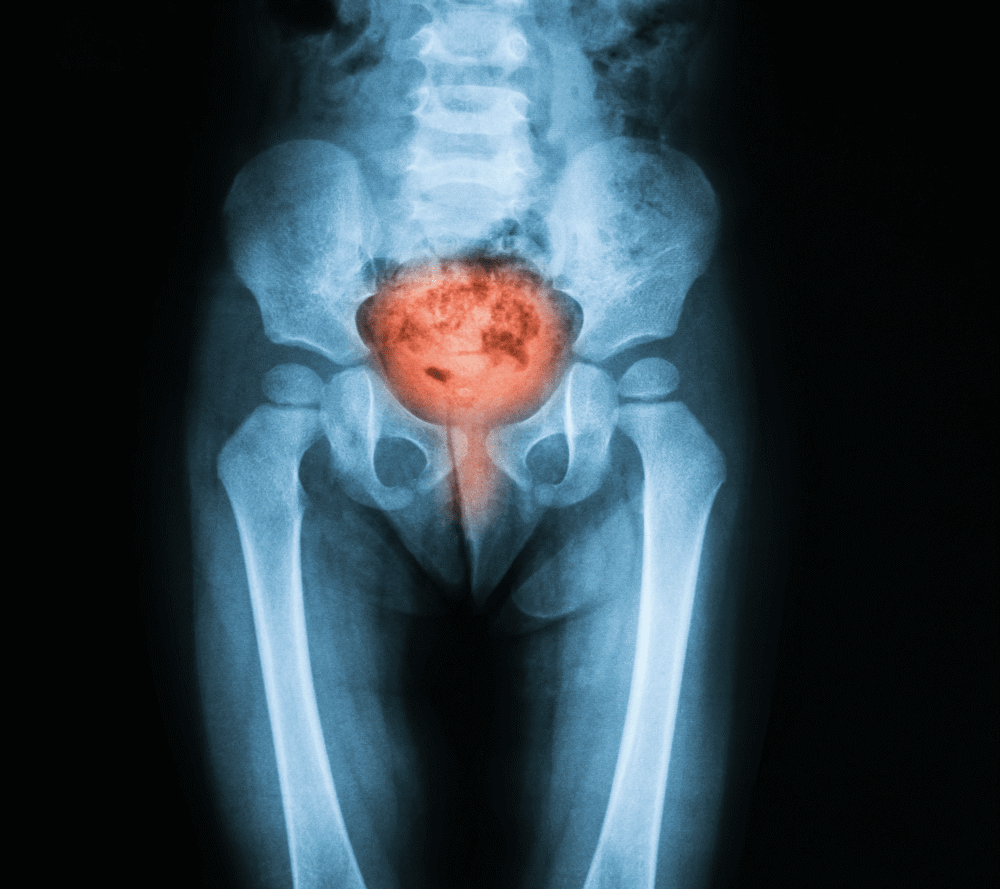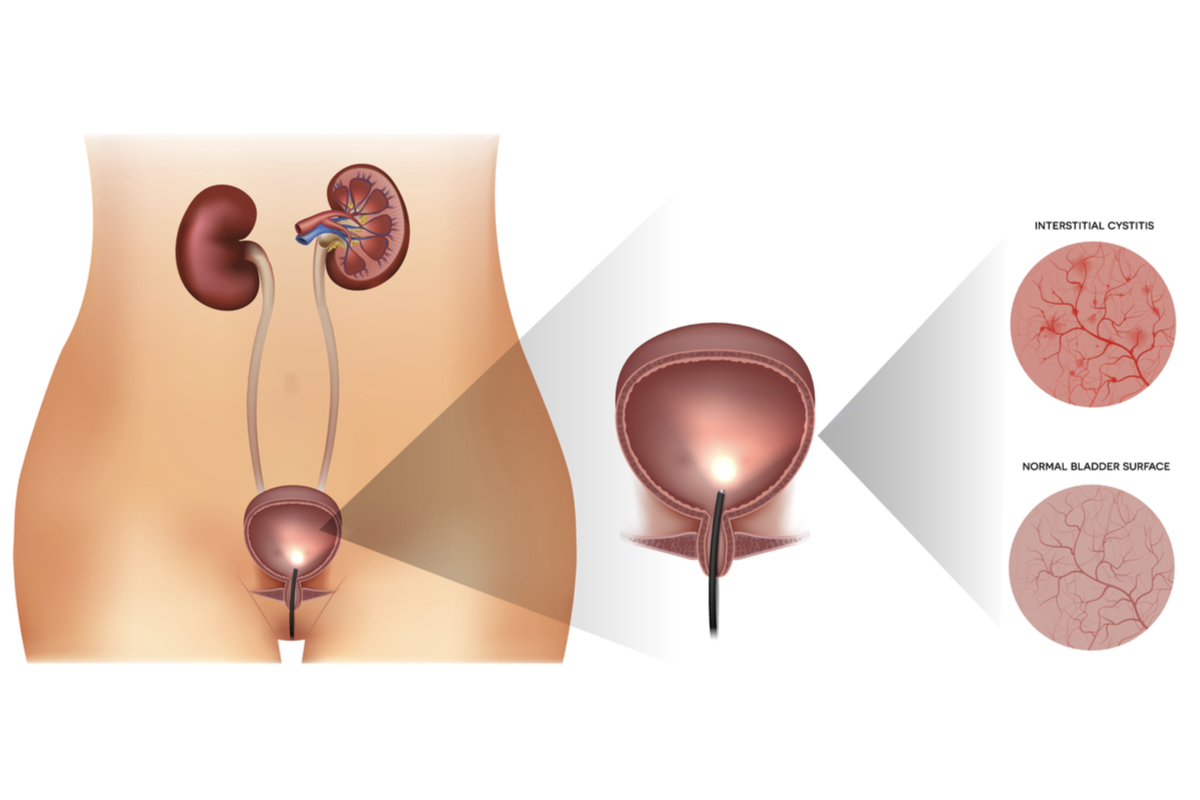Cystitis refers to bacterial infection of the bladder, which causes it to become inflamed. It is a common type of lower urinary tract infection (UTI) that occurs when bacteria enter the bladder via the urethra.

Image Credit: Suttha Burawonk / Shutterstock.com
Cystitis in women
Cystitis is more common among women than men. The urethra is shorter in women and its opening is also located very close to the anus, which increases the likelihood of bacteria being able to enter the urethra, reach the bladder and cause an infection.
Most women develop cystitis at some point in their life and around 20% experience recurrent cystitis. Although the infection can occur at any age, it more commonly develops in sexually active women, pregnant women and women who have been through the menopause.
Can cystitis affect men?
Although cystitis is less common among men, the condition can be more serious when it affects men, as it may be caused by an obstructed urinary tract due to an enlarged prostate or tumor or by an underlying prostate or bladder infection. Cystitis is slightly more likely to develop in men who have unprotected anal sex.
Symptoms
Some of the common symptoms of cystitis include:
- Pain in the lower abdomen and back, especially in the bladder region.
- Feeling of pressure in the lower abdomen.
- Burning and stabbing sensation in the lower abdomen while urinating. This is called dysuria and is a common symptom of all forms of urinary tract infection.
- Increased urgency to urinate.
- Frequent urination with small amount of urine passed. The dribbling of urine is called polyuria and frequent urination during the night is termed nocturia.
- Urine may be tinged with blood (hematuria) or appear dark or cloudy. The urine may smell foul or pungent.
- General malaise with fever, muscle and body ache.
- Children with the condition may become weak, irritable, have a reduced appetite, and cry more frequently. High fever, vomiting and diarrhea are other symptoms and the child may also complain of pain while urinating.
- Pain during sexual intercourse.
Sometimes cystitis does not present with any symptoms, particularly in older individuals. The infection might only then be discovered when urine analysis is performed for other reasons. Among older individuals, cystitis may cause symptoms such as confusion or fever, rather than symptoms related to urination. In cases where the bladder is not functioning properly due to nerve damage or when an individual has a catheter inserted, cystitis may be present in the absence of symptoms until a fever or infection of the kidney develops.
If a patient has cystitis, a physician may be able to see blood and pus in the urine, which is usually collected mid-stream and then analyzed in the laboratory. The urine sample is cultured to determine the type of bacteria present and which antibiotics it is sensitive to.
When diagnosing cystitis, doctors also need to rule out conditions with similar symptoms such as gonorrhoea, chlamydia, UTI, vaginal thrush or Candida infection, urethritis, prostatitis and/or urethral syndrome.
Cystitis – Infectious Diseases | Lecturio
Interstitial cystitis
Interstitial cystitis is non-infectious inflammation of the bladder, which is also referred to as painful bladder syndrome. It is a chronic condition that causes abdominal, pelvic and suprapubic pain, increased urination frequency and urgency to urinate with incontinence. The condition usually affects women and can have a long-term impact on quality of life.
A healthy bladder usually expands until signals are sent to the brain when it is full via the pelvic nerves, which creates an urge to urinate. In the case of interstitial cystitis, this signalling mechanism is faulty, thus causing affected individuals to feel the need to urinate more frequently, with only small urinary volumes being produced.

Image Credit: Tefi / Shutterstock.com
Interstitial cystitis is asymptomatic at first; however, as the bladder wall becomes damaged over time, symptoms begin to appear and then worsen. The symptoms of interstitial cystitis include:
- Chronic pelvic pain
- Pain in the pelvis between the anus and vagina in women and between the anus and scrotum in men
- Pain during sex
- Urgent and persistent need to urinate
- Painful filling of the bladder that is relieved after urination
- Frequent urination with small volumes of urine passed. Some people with this condition can urinate as often as 60 times per day.
The severity of these symptoms varies between individuals; however, in some people, symptoms can worsen by menstruation, seasonal allergies, ovulation, stress and/or sexual intercourse. Drinking alcohol, smoking and eating spicy food may also worsen symptoms.
Although there is no medication that can completely eliminate interstitial cystitis, drugs and other therapies can provide relief and improve symptoms in most individuals.
References
Further Reading
Last Updated: May 19, 2023